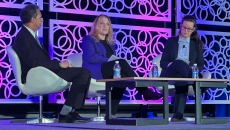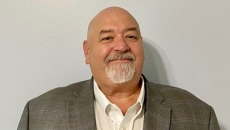HIMSS23
The Los Angeles LGBT Center is using the model to help shape its approach to health equity in providing care for often-underserved populations. Gabriel Garcia-Lopez, the center's health information systems director, explains.
Andrea Palm, deputy secretary at the U.S. Department of Health and Human Services, says the agency is striving to "put the people we serve at the center of what we do." Meanwhile, ONC officials offer updates on new Cures Act rules.
Analytics are helping RNs to do their work more safely and efficiently, says Chad B. Carroll, from the HIMSS Nursing Informatics Committee, who talks about how automation can also reduce documentation burden.
Mike Brandofino, COO and president of Caregility, explains how artificial intelligence is helping connect platforms to enhance hybrid care in the hospital setting.
Even with a serious provider shortage, virtual care can help connect patients to care in underserved areas, says Dan Ferris, chief marketing officer at Iris Telehealth.
The burden of documentation has a significant impact on patient care - but automation can help, says Whende Carroll, clinical informatics advisor at HIMSS.
While stakeholders agree the new interoperability and decision support rules could improve quality outcomes, some note that significant up-front commitment is needed for health IT developers while providers still document care with unstructured data.
The promise of hospital-at-home in the U.S. and improving clinical informatics in the MENA region, as told by Dr. Anwar Jebran, clinical informatics fellow at UI Health and member of the HIMSS Physician Committee.
Anne Snowdon, chief scientific research officer at HIMSS, discusses strategies for embracing digital transformation to strengthen healthcare for a post-pandemic world.
At HIMSS23, Steven Lazer, global healthcare and life sciences chief technology officer at Dell Technologies, joined MobiHealthNews to discuss Dell's work within digital health.









